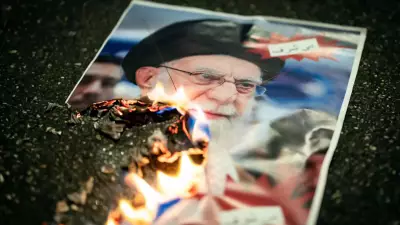
Bangladesh's Moment of Political Reckoning
Bangladesh stands at a critical juncture following the death sentence pronounced on former Prime Minister Sheikh Hasina on November 19, 2025. This verdict represents more than just a legal conclusion—it marks a seismic shift in the nation's political landscape, forcing Bangladesh to confront its troubled history and uncertain future.
The Weight of History and Personal Tragedy
Sheikh Hasina's story is inextricably linked with Bangladesh's national identity. As the daughter of Sheikh Mujibur Rahman, the founding father who led East Pakistan to become sovereign Bangladesh, her life has been defined by both immense personal tragedy and remarkable political resilience. The conviction stems from crimes against humanity committed during the brutal suppression of the 2024 student protests, events that resulted in hundreds of deaths and left countless families searching for answers.
While the legal assignment of responsibility might bring some measure of solace to victims' families, the trial's speed and lack of transparency have raised serious concerns. In fragile democracies like Bangladesh, justice often walks a tightrope—swift action can appear selective, while hesitation is interpreted as weakness.
The Yunus Factor: Breaking Political Patterns
The current crisis also highlights the troubling aspects of Hasina's political tenure, particularly her relentless pursuit of political rivals. The most prominent example was her sustained campaign against Muhammad Yunus, the Nobel Peace Prize laureate now heading Bangladesh's interim government.
Yunus represents an unconventional political figure. His pioneering work in microfinance through Grameen Bank revolutionized global development thinking and empowered millions of rural women. Internationally recognized for his moral stature and innovative approach, Yunus stood apart from Dhaka's established political elite. Yet he found himself targeted by investigations that many global observers viewed as politically motivated.
Now, Yunus faces a defining moment that could either reinforce Bangladesh's established political culture or begin to dismantle it. The nation's bureaucracy and security agencies have historically been shaped by the preferences of whichever party held power. Unwinding these entrenched loyalties requires not just administrative skill but moral vision rarely seen in transitional governments.
Regional Implications and India's Dilemma
The political vacuum created by the Awami League's sudden displacement presents significant regional challenges. Forces waiting on the margins, including previously suppressed Islamist groups, could see an opportunity for resurgence. This development would not only destabilize Bangladesh but threaten the entire region's security architecture.
For India, which shares a long and porous border with Bangladesh, the stakes are particularly high. During Hasina's tenure, Bangladesh became India's most reliable partner in its "Neighbourhood First" policy. The two nations achieved unprecedented counter-terrorism cooperation, Northeastern insurgent groups were denied sanctuary, and borders grew calmer.
India's decision to grant Hasina asylum, while rooted in humanitarian concerns and historical ties, has placed New Delhi in a delicate diplomatic position. With Dhaka's new government seeking extradition, India must navigate carefully—firm enough to uphold its decision while avoiding the appearance of interference in Bangladesh's internal affairs.
The Path Forward: Healing Through Institutions
Beneath the immediate political crisis lies a fundamental question: Can Bangladesh break its entrenched cycle of political retaliation? For decades, the nation's politics has been characterized by patterns of delegitimization—each government discrediting its predecessor, each opposition waiting to avenge past defeats.
Such patterns gradually corrode institutions and deny nations the continuity and civic patience that healthy democracies require. Moments of political rupture often tempt leaders with purges presented as necessary reforms. However, nations don't heal through purges but through predictable procedures, credible institutions, and inclusive national belonging.
If Muhammad Yunus can guide Bangladesh even partially toward this future, he will achieve what successive governments have failed to deliver: a politics not driven by fear of the other. If Bangladesh's leaders can rise above the familiar rituals of rivalry and vengeance, the nation may yet move closer to Kazi Nazrul Islam's vision of Sonar Bangla—a golden land anchored not in grievance but in possibility.





